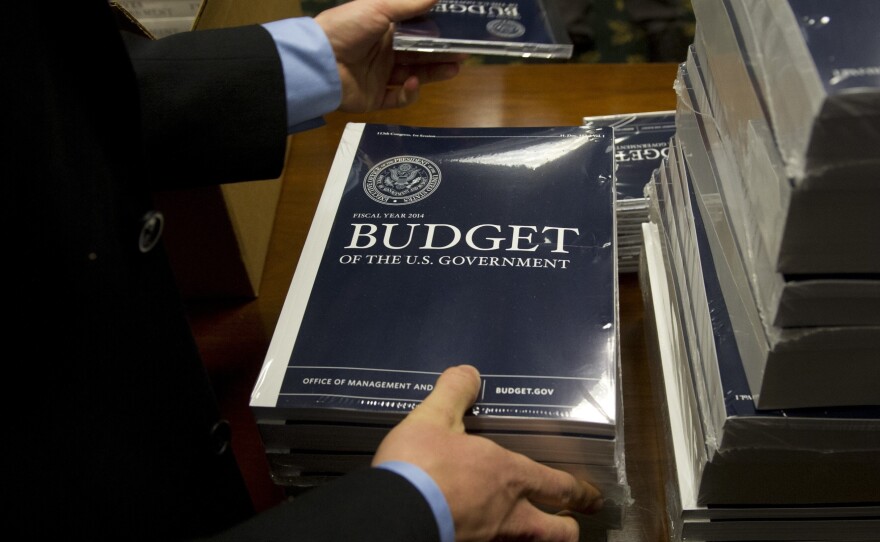President Obama will unveil his 2014 budget proposal on Wednesday, including cuts to Social Security and Medicare, as well as tax increases and new investments. The net, says the White House, will be $1.8 trillion in deficit reduction over the next decade.
The $3.77 trillion spending plan due out before noon on Wednesday includes $50 billion for roads, bridges and public works, $1 billion to spur manufacturing innovations and $1 billion for a revamp of higher education, Bloomberg reports.
But its aim to raise $580 billion in revenue partly by closing tax loopholes for the wealthiest Americans is likely to make the latest budget no more than an opening salvo in the seemingly unending fiscal grudge match with congressional Republicans.
The cuts to entitlement programs are not winning much support among fellow Democrats either.
As NPR's Scott Horsley explains, there's something for everyone to dislike in the new budget - liberals don't like the spending cuts and conservatives don't like the tax increases.
On taxes, he says, "it's far from clear that Republicans will go along with that. Certainly, Republican leaders [have] given no indication they will," Horsley says.
According to Bloomberg, a change in the way the Consumer Price Index is used to calculate cost-of-living adjustments on Social Security, veterans' pensions and tax brackets:
"... would bring smaller increases for Social Security recipients and bounce taxpayers into higher brackets more quickly. [Obama] also proposes to slow the growth in Medicare by cutting payments to drug companies and health-care providers and requiring higher income beneficiaries to pay more."
NPR's Frank James, who has a more detailed outline of the budget, says "even a budget that's going nowhere gives a president the chance to state priorities and place dollar amounts next to them."
The proposal's new spending includes a short-term "mini-stimulus" for road and bridge construction prompted by continuing high unemployment and a longer term call for high-quality preschool to be made more widely available.
That was already outlined in the president's State of the Union address, but "today we'll see the price tag. Not cheap. But the White House says it could pay for it with higher taxes on cigarettes," Horsley says.
The budget projects a deficit of $744 billion for the year. That would be the lowest gap between spending and revenue since 2008, according to The Associated Press.
Copyright 2013 NPR. To see more, visit www.npr.org.





